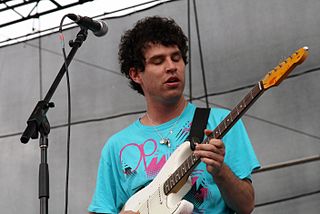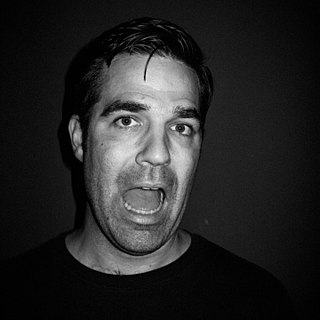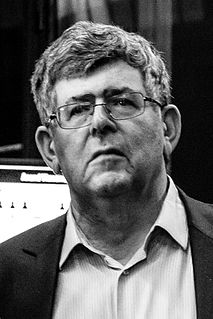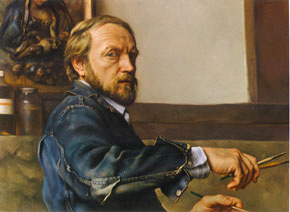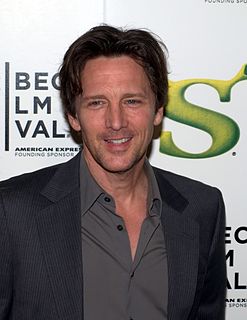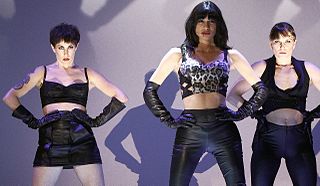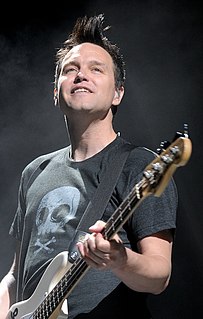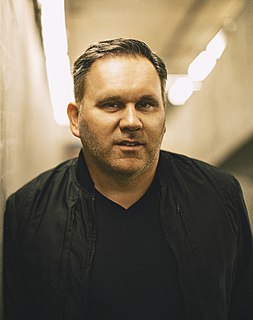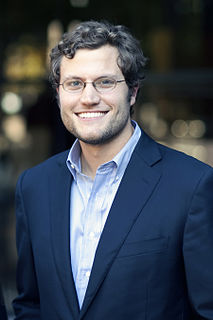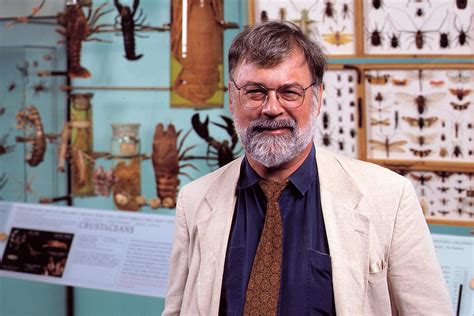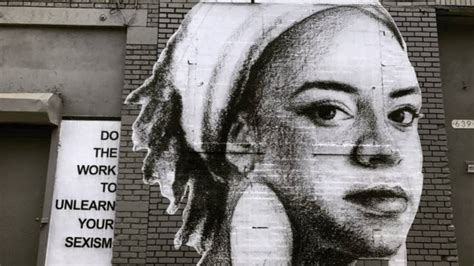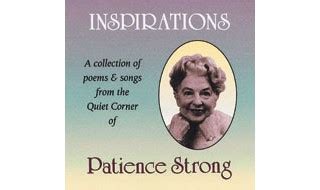Top 1200 Theme Quotes & Sayings - Page 19
Explore popular Theme quotes.
Last updated on December 4, 2024.
It's weird, in New York, it's like the big theme of everything is folk music and interacting with people. Maryland is where the landscape of our music comes from, it was more like, let's walk around. People are saying that we are part of some sort of folk scene. We don't feel connected with it. We do live in the city, and communicate with people. It's all folk music.
Looking back on my whole experience, the biggest takeaway was just being proud of what you do, and knowing that it's okay to do your best even if it's not the best. That's sort of the theme. I mean, obviously I'm not the best singer, obviously I'm not the best piano player or the best songwriter, but I'm doing my best on all of 'em. Once you have all those things in place, then I think everything falls the way it should.
A long-term relationship is about showing up and working hard and banking on each other. If one's down, the other might be up and can help the other one up, and sometimes you're both down and you just [band] together. Endurance is a big theme of it for me. That might not sound romantic, but I kind of think that it is.
She knew with suddeness and ease that this moment would be with her always, within hand's reach of memory. She doubted if they all sensed it - they had seen the world - but even George was silent for a minute as they looked, and the scene, the smell, even the sound of the band playing a faintly recognisable movie theme, was locked forever in her, and she was at peace.
Even one word, or certainly one sentence, should be able to describe the basic characteristic that the scene has, or the character has, or the story has. And then you begin to detail that one spine, and you have offshoots from that spine, and it becomes more and more complex, but all of it stems from that one-word, one-line theme, which can give the character, the scene, or the play its uniqueness.
The theme of the diary is always the personal, but it does not mean only a personal story: it means a personal relationship to all things and people. The personal, if it is deep enough, becomes universal, mythical, symbolic; I never generalize, intellectualise. I see, I hear, I feel. These are my primitive elements of discovery. Music, dance, poetry and painting are the channels for emotion. It is through them that experience penetrates our bloodstream.
But novels are never about what they are about; that is, there is always deeper, or more general, significance. The author may not be aware of this till she is pretty far along with it. A novel's whole pattern is rarely apparent at the outset of writing, or even at the end; that is when the writer finds out what a novel is about, and the job becomes one of understanding and deepening or sharpening what is already written. That is finding the theme.
Somewhere in your life there will be an overriding theme to your quest - some part of your desire that cannot be denied without a terrible cost to the very essence of what you are. Are you going to ignore it, or do you have the courage of your commitment and the confidence to demand that life, humanity, or circumstances give you what you want, with no other excuse, reason or apology other than that you demand it?
Finally, to the theme of the respiratory chain, it is especially noteworthy that David Kellin's chemically simple view of the respiratory chain appears now to have been right all along-and he deserves great credit for having been so reluctant to become involved when the energy-rich chemical intermediates began to be so fashionable. This reminds me of the aphorism: 'The obscure we see eventually, the completely apparent takes longer'.
Often you will find the opposite situation. The author seems to have interesting ideas, but he is not able to illustrate them with decent examples. If a grandmaster is commenting on one of his own games, then there is usually not any problem: his general thoughts are closely tied up with what is happening on the board. But as soon as he starts writing an article or book on a different theme the difficulties begin, as he may not have suitable material to hand.
When I go to Florida for Christmas I always take my nieces and nephews out on excursions, ... I become like a big kid again. We go on all the big rides at the theme parks or I stick them in go-karts where their feet can't quite reach the pedals. I think that if you can continue to have the child at heart you may grow old physically but you will stay young mentally.
I'm always loath to make generalizations about what is for children and what isn't. Certainly children's literature as a genre has some restrictions, so certain things will never pop up in a Snicket book. But I didn't know anything about writing for children when I started - this is the theme of naïveté creeping up on us once more - and I sort of still don't, and I'm happy that adults are reading them as well as children.
It's not necessarily a church theme and it's not really about church. I like my album themes to be metaphors because it gives me the freedom to speak about something else that's going on in my life, so the Born Sinner thing is not about church, it's not even about religion. It's using that as canvas to get other messages across and that's what the album will be.
I think of music a lot when I paint. The theme of it to a degree is music. So instead of literally putting in music or literally putting in a musical instrument, I use only a hint of the instrument, but the brocaded pattern is like a line of Bach because of its order and the leaves going up are like passages from Vivaldi, and the emphasis on drapery is where the sound comes.
I started with wanting to think about witches, about strong women who have special powers - who are often misunderstood. Then I found some beautiful blue fabric, so I made Blue Witches. My creative process is always like that. Organic, text, theme, subtext, each day evolving and trying to make strong, beautiful clothes. It's that simple.
It's a little bit like talking about the life of writing. The life of writing may be about many things, but it always begins with the writer. With the kernel of an idea, or a character, or an idea or a theme, or even an outcome. But for documentary photographers, photographs begin at that intersection of the real world and the imaginative inner world.
Both sex and death are eternal themes. You could make thousands of movies on this theme, and whether you have a human being who is painting, singing, making a film, writing, these are the themes that you will come back to and return to. If you don't have any of these artistic expressions, sex is one of the only gifts that nature gave you for free, so it is very important to celebrate it. And then, with death, we are condemned to that. This is absolutely present in our lives.
I'd prefer people read about Churchill and how he wasn't overwhelmed by Nazi Germany. Amazing; that the morale of a country rested on one person's shoulders. Extraordinary people carried that country through its darkest hours; truly inspirational. I suppose that's my theme. Whether it's a biography or a movie; whether it's fictional or true, I'm inspired by people doing great things.
The White Horse video which was directed by Marco Ovando started off with a biker theme. Once Ava Sanjurjo came in as stylist along with Marco & I it really took it's own shape. It was all very improvised but wound up paying homage to NY and night life. People say it reminds them of a Guess ad which I love!
We never really set out to talk about California on the album ['California'], it was something that we noticed that was happening about three-quarters of the way through the recording process. We were looking at which songs we thought would make the record and we realised that there was this theme coming through. I think it's just a product of being in California for as long as I have.
I think each book sort of finds its own theme as it goes on. 'Warded Man' was fear. 'Desert Spear' was exploration of the other. 'Daylight War' was relationships. Some of this is intentional, and some of it evolves naturally. The series as a whole is obviously something I have given a lot of thought to, but each book is its own animal as well.
I'm not good at narrative; I'm really a gag writer, and that comes from being in the newspaper comic strip world for a while in college. What I do is I just write tons of jokes, then I sort them out in terms of quality and then pick the best of the jokes and then try to form them into a plot. If I get a good theme going, I feel lucky.
It's such a biblical posture in worship that speaks of reverence. If you look through the Bible, there's a whole host of people who faced up to the glory of God and found themselves facedown in worship. So the album weaves through a theme of reverence, wonder, and mystery in worship, things I feel we really need to grasp more of in our worship expressions. I know that I do!
Imagine wasting all that perfectly good anger on paranoid fantasies. Not since Emily Litella got upset about "Soviet jewelry" has there been such a waste of anger. You will notice a certain theme to these Emily Litella Moments. Behind them all is a touching faith that someone, somewhere is actually in charge of what's happening - a proposition I beg leave to doubt.
Jazz is the music of the body. The breath comes through brass. It is the body's breath, and the strings' wails and moans are echoes of the body's music. It is the body's vibrations which ripple from the fingers. And the mystery of the withheld theme, known to jazz musicians alone, is like the mystery of our secret life. We give to others only peripheral improvisations.
There are times when you need to step back and realize that movie studios today are not necessarily the same things that they were many years ago. Many movie studios are international conglomerates now. They own everything from theme parks to toy companies to T-shirt companies to video companies. There's a lot of different wheels to be greased.
To go into more specifics regarding actors, whether they're from Korea or the U.S., all actors know if they are loved by the director. When they feel that love from the director, they respond by giving a great performance on camera. Also, everyone on set - the crew, the actors - they were aware of the film's message and its broad theme, so these big issues were never discussed on set.
William Saroyan wrote a great play on this theme, that purity of heart is the one success worth having. "In the time of your life--live!" That time is short and it doesn't return again. It is slipping away while I write this and while you read it, and the monosyllable of the clock is Loss, loss, loss, unless you devote your heart to its opposition.
Every man is occasionally visited by the suspicion that the planet on which he is riding is not really going anywhere; that the Force which controls its measured eccentricities hasn't got anything special in mind. If he broods on this somber theme long enough he gets the doleful idea that the laughing children on a merry-go-round or the thin, fine hands of a lady's watch are revolving more purposely than he is.
I watched some serious '80s television. 'Alice,' 'Good Times,' 'The Jeffersons,' 'Family Ties,' 'Cheers'... every night it was eat dinner, watch 'Cheers.' I was actually on 'Jeopardy' with Rebecca Lobo and Dot Richardson, and we were laughing because I was just nailing every random '80s trivia question - sitcom, theme music, movie, you name it.
[The Golden Notebook] was not a trumpet for Women's Liberation. It described many female emotions of aggression, hostility, resentment. It put them into print. Apparently what many women were thinking, feeling, experiencing, came as a great surprise. Instantly a lot of very ancient weapons were unleashed, the main ones, as usual, being on the theme of "She is unfeminine", "She is a man-hater".
Besides my fast and slooow songs, I further divide my work into three main song types: the ballad or story song, the variation on a theme (saying the same thing over and over and over again) song, and the weird song. It's important to have weird songs, but I find that a little weirdness goes a long way.
It is what makes conscious of the conditions and laws of observing which applied in this manner become a theme on its own. The activity of consciousness depending on the way the work itself proceeds, becomes the subject of my attention this way and it is precisely because of this voyeuristic attitude toward the own observation and experience of the subject that the conscious analytic dimension in the work shows.
The only way I know as a director is to figure out what the film is about. And out of the theme and the sense of what the film is about, all those decisions start to make sense. But to find that truth within it, you have to limit your possibilities and limit your choices. That's where this visual language grows out of.
I don't personally feel comfortable performing in a comedy club, mainly because as an audience member, I've never enjoyed that experience. It feels a little bit theme-park-ish to me, in that it's a club whose product is comedy. I find that weird. It's like those specialty chocolate stores, where everything is chocolate. It's too specific. I like going somewhere that specializes in variety.
One theme that fascinates me is cognitive enhancement. It seems only a matter of time until we live in a world where steroids for the brain are readily available to all. And once we come to grips with that reality, I suspect the debate over the ethics will be much more heated than the debate over steroids in baseball or any other sport, where the use is limited to a select group of freakish athletes.
Siphonophores do not convey the message a favorite theme of unthinking romanticism that nature is but one gigantic whole, all its parts intimately connected and interacting in some higher, ineffable harmony. Nature revels in boundaries and distinctions; we inhabit a universe of structure. But since our universe of structure has evolved historically, it must present us with fuzzy boundaries, where one kind of thing grades into another.
Not surprisingly, as the pioneer theme is presented, each goes back in memory to his or her own family line. There are usually examples to identify and which fit the definition of a pioneer: "one who goes before, showing others the way to follow." Some, if not all, made great sacrifices to leave behind comfort and ease and respond to that clarion call of their newly found faith.
Paleontologist Niles Eldredge, a prominent evolutionist, said: 'The doubt that has infiltrated the previous, smugly confident certitude of evolutionary biology’s last twenty years has inflamed passions.' He spoke of the 'lack of total agreement even within the warring camps,' and added, 'things really are in an uproar these days . . . Sometimes it seems as though there are as many variations on each [evolutionary] theme as there are individual biologists.'
When I look at the directors that I really love, who really develop their films over time, they're almost always the ones who go back again and again and again at the same investigations. I think that when somebody has a theme they go after, it's fun to service that. It's like, "I know you now. I know what you go at." It helps you locate yourself a little bit quicker in their world.
When you go through life ... it all seems accidental at the time it is happening. Then when you get on in your 60s or 70s and look back, your life looks like a well-planned novel with a coherent theme ... Incidents that seemed accidental, pure chance, turn out to be major elements in the structuring of this novel. Schopenhauer says, 'Who wrote this novel? You did.'
You're treated as though you're just a piece of meat, and you're there for consumption by men. I feel like the common thing is men feeling entitled to treat you how they want to treat you. You never feel as though you have a right to the space. And so that's the theme behind most of the posters - "I'm not outside for your entertainment" and "I'm not seeking your validation."
And yet, we know how fatal the pursuit of liveliness may be: it may result in ... tiresome acrobatics. ... Flashy effects distract the mind. They destroy their persuasiveness; you would not believe a man was very intent on ploughing a furrow if he carried a hoop with him and jumped through it at every other step. ... When virtuosity gets the upper hand of your theme, or is better than your idea, it is time to quit.
'Saw VI' has a really interesting theme about the ripple effect. Everything you do affects the guy next to you, which affects the guy next to him, which affects her over here. And you might think that what you're doing is not that significant, but just the way you respond to other people makes the world the way it is.
The first thing I think I ever played in public, aside from singing in church, would have been - and this is a true story - when I was about nine or 10 years old, I was obsessed with Twin Peaks. I played the theme from Twin Peaks on a little tiny Casio keyboard. People politely applauded. I just fell in love with that song and thought it was very heartbreaking.
The theme of the collection this time is MONSTER. It's not about the typical Monster you find in sci-fi and video games. The expression of the Monsters I have made has a much deeper meaning. The craziness of humanity, the fear we all have, the feeling of going beyond common sense, the absence of ordinariness, expressed by something extremely big, by something that could be ugly or beautiful. In other words, I wanted to question the established standards of beauty.
Like a lot of kids, I had a Superman cake or different theme cakes, but then I hit the age where I think my mom thought I was ready for the German chocolate cake that she makes for my dad. Just the sight of that, the taste of that frosting, just reminds me of being at home with my mom and my dad and my sister and my friends.
My reading was good enough to play big-band charts, but I ran into trouble with Claude (Thornhill)'s theme song "Snowfall," which had a repeating bass line in D-flat that was very difficult for me to finger using my self-taught technique. I spent one morning figuring out an alternate fingering, and that started me on the way to learning a better use of the fingerboard.
The trees change their voices in autumn as well as their shapes. No longer do they whisper to one another in muffled tones as they did in summer; they talk in a different leaf-language now. The wind moves through the boughs like fingers drawn across the strings of a harp filling the air with the harsh dry sound of sapless leaves. It is the main theme of the autumn music, this murmuring counterpoint of dead leaves.
There is a single theme behind all our work-we must reduce population levels. Either governments do it our way, through nice clean methods, or they will get the kinds of mess that we have in El Salvador, or in Iran or in Beirut. Population is a political problem. Once population is out of control, it requires authoritarian government, even fascism, to reduce it.
It is not true that if we had true faith we would not be sad. Prophets (as), and righteous people experienced a great deal of sadness. The Quran is full of stories in which the central theme is sadness. Sadness is a reality of life. The Quran is not there to eliminate sadness, but to navigate it. Sadness is one of the tests of life, just as happiness, and anger are tests.
